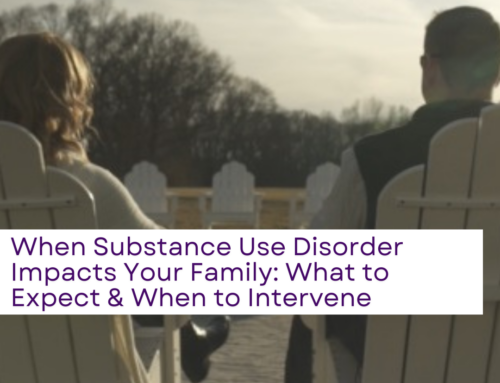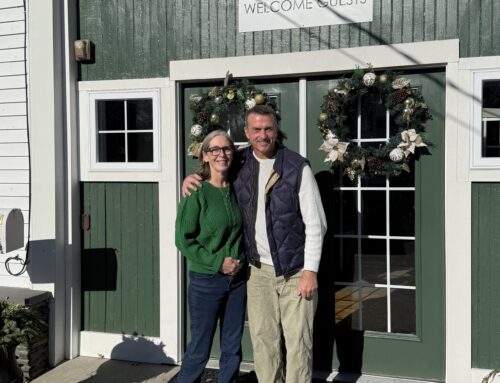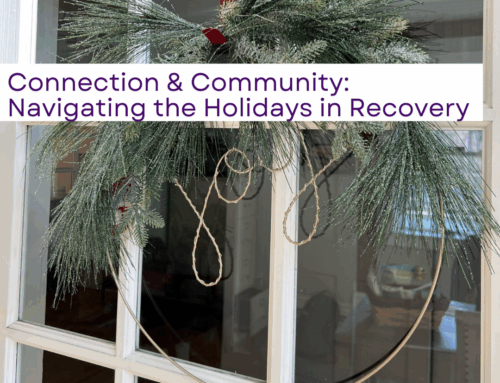
The holidays are often portrayed as the most wonderful time of the year—a season filled with joy, gatherings with family and friends, and creating happy memories. But for many older adults, the reality can be quite different.
As darkness arrives earlier each day and portrayals of holiday celebrations start feeling as though they underscore what’s missing rather than what remains, loneliness can become overwhelming. And, for some, alcohol becomes a way to numb these difficult feelings.
The Hidden Struggle of Older Adults
Alcoholism and alcohol use among older adults is a growing concern that needs attention and compassion. What makes this particularly concerning is that alcohol-related problems in older adults often go unrecognized, dismissed as normal aging, or simply overlooked because people don’t expect to see substance use issues in this population.
The truth is, our older loved ones face unique challenges that can make them especially vulnerable to using alcohol as a “coping” mechanism. Retirement brings a loss of daily structure and purpose. Adult children move away or become absorbed in their own busy lives. Spouses and longtime friends pass away. Mobility issues make it harder to get out and stay connected.
Add to these issues seasonal challenges—shorter days, icy conditions that make leaving home feel daunting, holiday messaging that emphasize family and togetherness—and isolation can become a serious concern.
When a Drink Becomes More Than a Drink
For many older adults, drinking may have started as a social activity or an occasional way to unwind. But as loneliness and isolation deepens, an evening glass of wine can gradually become two, then more, then a way to fill the long, quiet hours. Alcohol can feel as though it offers escape from feelings of emptiness, boredom, or sadness.
The progression of drinking habits is often subtle. Older adults often drink alone at home, making the problem less apparent to family members and friends. And because many older adults live independently, their drinking can go completely unnoticed until it reaches a crisis point.
What makes this cycle particularly precarious for older adults is that aging bodies process alcohol differently. The same amount of alcohol that once had minimal effects can now cause significant impairment. Older adults are more susceptible to falls, confusion, and dangerous interactions between alcohol and medications.
Recognizing the Signs of Problem Drinking with Compassion
If you have an older loved one in your life, it’s worth paying attention to some warning signs—not with judgment, but with care and concern.
Has their home become messier or less organized than usual? Are empty bottles accumulating? Have they stopped engaging in hobbies or activities they once enjoyed? Do they seem confused, unsteady, or different in ways that aren’t explained by their medical conditions? Have they missed medical appointments or stopped taking medications properly? Are they becoming more isolated, declining invitations, or seeming less interested in phone calls or visits?
These signs don’t necessarily mean your loved one has a drinking problem, but they do suggest that something is wrong and they may need support. Remember that for older adults, shame and stigma around alcohol use can be even more pronounced than in younger generations, making it harder for them to ask for help.

Breaking the Cycle with Kindness
Addressing alcohol use among lonely older adults isn’t just about treating alcoholism—it’s about addressing the root cause: isolation and the emotional pain that comes with it. One of the most powerful interventions we can offer is connection.
Consider creating regular touchpoints: a standing Sunday dinner, a weekly grocery shopping trip together, or a monthly outing to somewhere they enjoy. Help them find or reconnect with community—senior centers, faith communities, volunteer opportunities, or hobby groups. Many communities now offer transportation services specifically for older adults.
For those whose drinking has become problematic, professional help is available and effective. Encourage them to talk with their doctor, who can assess both the drinking and any underlying depression or anxiety.
How Alcohol Treatment Can Help: It’s Never Too Late

One of the most hopeful truths about substance use disorder is that treatment works—and age is not a barrier to recovery. In fact, older adults often respond very well to treatment. They tend to have strong motivation to improve their health and quality of life, and they bring decades of life experience and coping skills that can support their recovery journey.
Treatment for older adults is most effective with a holistic approach, recognizing that the drinking is often intertwined with loneliness, depression, grief, and life transitions. Effective treatment addresses not just the alcohol use itself, but the underlying
Medical Support and Safety: The first step often involves medical assessment and, if needed, medically supervised detoxification. This is especially important for older adults who may have been drinking heavily, as withdrawal can be dangerous without proper medical oversight. Healthcare providers can also review medications to address any dangerous interactions and treat co-occurring conditions like depression or anxiety that may have been masked by alcohol use.
Therapy and Counseling: Individual therapy provides a safe, confidential space to explore the feelings and circumstances that led to problematic drinking. For older adults, this often means processing grief, adjusting to life changes, and developing new coping strategies for loneliness and isolation. Cognitive-behavioral therapy (CBT) has proven particularly effective, helping people recognize thought patterns that lead to drinking and developing healthier responses.
Group therapy offers something equally valuable: connection with others who understand. Many older adults feel tremendous relief discovering they’re not alone in their struggles. These groups provide peer support, reduce feelings of shame, and create new social connections—directly addressing the isolation that often fuels drinking in the first place.

Building a New Support Network: Perhaps one of the most transformative aspects of treatment is the opportunity to build new, healthy connections. Treatment programs often connect participants with community resources, senior centers, volunteer opportunities, and ongoing support groups. These connections can replace the isolation that led to drinking with genuine community and purpose.
Improving Overall Quality of Life: When older adults get treatment for alcohol use, the benefits extend far beyond stopping drinking. Many report sleeping better, having more energy, experiencing clearer thinking, and feeling more emotionally stable. Physical health often improves as the body recovers from alcohol’s effects. Relationships with family members may heal as trust is rebuilt. And perhaps most importantly, people often rediscover a sense of hope and purpose they thought was gone forever.
Treatment also helps family members, who are often carrying worry, guilt, and confusion about how to help. Many programs include family education and counseling, helping loved ones understand alcohol use disorder, heal from its impacts, and learn how to provide supportive, healthy relationships moving forward.
Recovery is possible at any age, and the years ahead can be rich with meaning, connection, and joy. Treatment isn’t just about stopping drinking—it’s about reclaiming life and rediscovering the possibility of happiness and connection.
A Message of Hope
If you’re an older adult reading this and recognizing yourself in these words, please know that you don’t have to face this alone. Loneliness and the struggles that come with it aren’t character flaws—they’re human experiences that many people share, especially during these challenging seasons of life. Reaching out for help is a sign of strength, not weakness.
If you’re a family member or friend concerned about an older loved one, your awareness and compassion are already making a difference. Approaching the situation with understanding rather than judgment, offering connection rather than criticism, and providing practical support can help break the cycle of isolation and alcohol use.

With the right mindset, connection, and support people can not only survive the holiday season without drinking, but thrive and experience joy and connection that isn’t possible when actively drinking.
About Herren Wellness
Herren Wellness is a thriving community of people at all stages in their recovery journey. We introduce holistic therapies and strategies centered around emotional, physical, and spiritual wellness, in addition to life coaching sessions, family support and an individualized wellness plan to provide a solid foundation in recovery from alcohol and substance use.
We believe that staying connected and community has a lasting impact on recovery, and encourage all alumni to participate in our weekly alumni meetings, seasonal events and annual retreat. Your connection to Herren Wellness doesn’t end when your stay ends; we are there for you throughout your recovery journey.

If you, or a loved one, are looking for help, please call us at (844) 443-7736, email us at info@herrenwellness.com, or register for a 30 minute consultation with our Executive Director, Lori McCarthy. It is never too early or to late to seek help for substance use at any stage.





